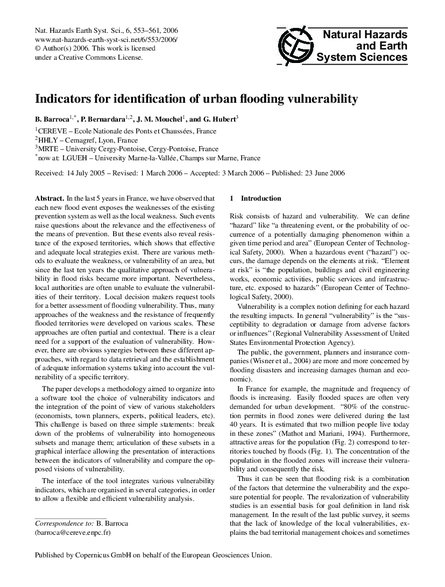
In the last 5 years in France, we have observed that each new flood event exposes the weaknesses of the existing prevention system as well as the local weakness. Such events raise questions about the relevance and the effectiveness of the means of prevention. But these events also reveal resistance of the exposed territories, which shows that effective and adequate local strategies exist. There are various methods to evaluate the weakness, or vulnerability of an area, but since the last ten years the qualitative approach of vulnerability in flood risks became more important. Nevertheless, local authorities are often unable to evaluate the vulnerabilities of their territory. Local decision makers request tools for a better assessment of flooding vulnerability. Thus, many approaches of the weakness and the resistance of frequently flooded territories were developed on various scales. These approaches are often partial and contextual. There is a clear need for a support of the evaluation of vulnerability. However, there are obvious synergies between these different approaches, with regard to data retrieval and the establishment of adequate information systems taking into account the vulnerability of a specific territory.
Resource collections
- Floods
- Learning from crises
- UN Habitat - Urban Response Collection
- Urban Response - Urban Crisis Preparedness and Risk Reduction
- Urban Response Collection - Community Engagement and Social Cohesion
- Urban Response Collection - Economic Recovery
- Urban Response Collection - Environment and Climate Change
- Urban Response Collection - Housing, Land and Property
- Urban Response Collection - Urban Crisis Response, Recovery and Reconstruction
- Urban Response Collection - Urban Resilience